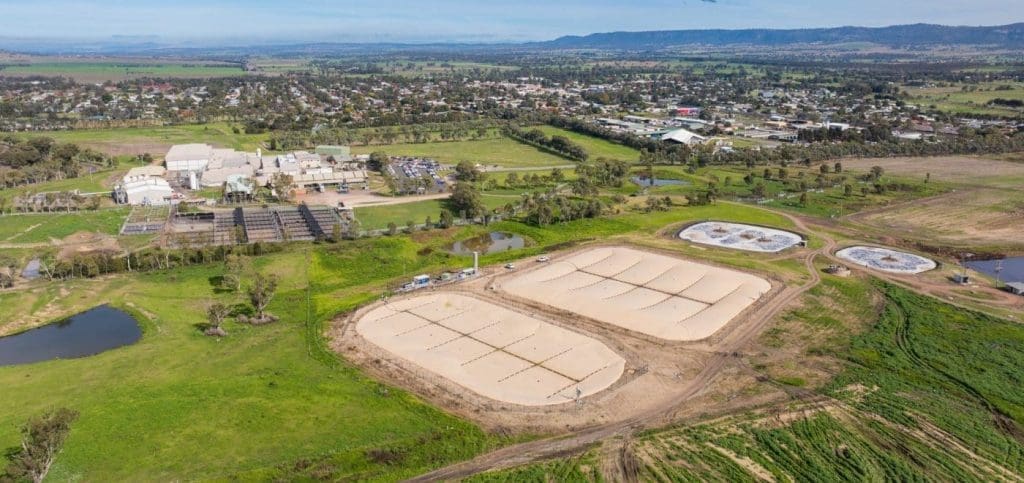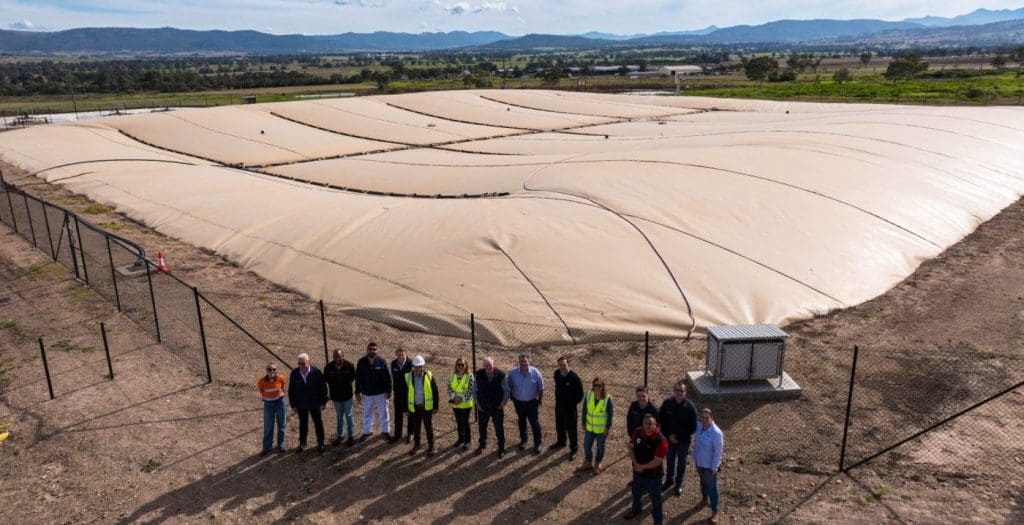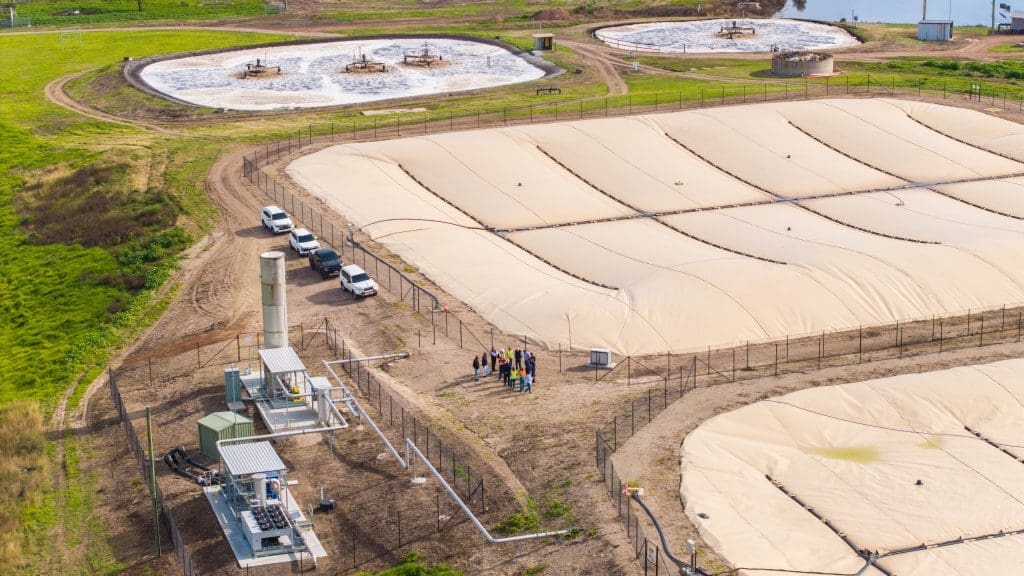
JBS Australia has completed the construction of a bioenergy system at its Scone beef processing plant in NSW, eliminating the equivalent of 23,000 tonnes of carbon dioxide emissions per year.
The bioenergy system was activated this month, capturing wastewater emissions to utilise on-site biogases for energy generation and reducing CO2 emissions.
The installation has transformed the plant’s wastewater treatment process into a circular flow that captures a naturally occurring by-product from wastewater, known as biogas, which is then utilised as a viable renewable gas.
JBS partnered with biogas handling company Energy360 to design and install the bioenergy infrastructure. The project included the installation of two gas-tight pond covers that encase the plant’s anaerobic wastewater lagoons to prevent biogas and waste odour from entering the atmosphere. This biogas is then redirected for use as a production heat source in substitute of liquefied natural gas.
In addition to reducing the plant’s emissions, the project has enabled cost-efficiencies by lessening LNG usage and reliance.
This bioenergy system represents one of two biogas projects commissioned this year by JBS Australia, with a total $11.1 million invested across the company’s Scone and Beef City (Toowoomba) processing facilities.

Holly Yuille, Corporate Affairs, AGL; Sam McConnell, Chief Operating Officer, JBS Southern; Patient Mupfeki, Engineering Manager, JBS Scone; Everton Melo, Plant Manager in Development, JBS Scone; Wayne Murraylee; General Manager Human Resources, JBS Southern; Neil Brereton, Group Engineer, JBS Australia; Samantha Lamond, Head of Energy 360; Mayor Maurice Collison, Upper Hunter Shire Council; Martin Brownlee, Environment Compliance Manager, JBS Southern; Greg McDonald, General Manager, Upper Hunter Regional Council; Leanne Ennis, Project Manager, Energy 360; Dennis Liberis, Financial Controller, JBS Southern; James Turner, Scone plant manager; Sean Naden, Operations Manager, JBS Southern; Olga Alexandratos, Director Corporate Communication, JBS Aust.
JBS Southern division chief operating officer Sam McConnell said the Scone bioenergy system demonstrated JBS’s focus on developing innovative solutions to improve sustainability outcomes.
“JBS Southern’s first complete bioenergy system at Scone aims to simultaneously reduce our emissions and our reliance on LNG. We see significant potential to introduce more renewable energy solutions across our JBS Southern sites, with Scone’s system exemplifying how we can innovate to create processes that boost operational efficiency while lessening our environmental impact,” Mr McConnell said.
Scone processing plant manager James Turner said the Scone team was pleased to bring the new bioenergy system into commission and commended the construction workers who installed the infrastructure.
“The bioenergy system enables us to make the most of our waste and manage our input costs by introducing an energy source that is naturally derived from our operations,” he said.

Member for New England, Barnaby Joyce toured the new bioenergy system at the Scone plant.
“Increased efficiencies for food processing means more jobs, more money flowing through the community, more food for consumption, and export,” Mr Joyce said.
“It’s about doing things better, and becoming as strong as possible as quickly as possible. You can only do this by looking at where you can improve what you do, with this flowing through to your bottom line. I was pleased to see JBS taking the initiative to lead innovation in the use of biogas for their operations and I look forward to seeing the processing plant provide more jobs and activity into the future.”
Upper Hunter Shire Council Mayor Maurice Collison commended JBS for investing in a waste treatment system that considers both the environment and surrounding community.
“JBS Australia’s investment into Scone’s sustainability infrastructure provides both employment opportunities for local contractors and improved amenities for the community. Through thoughtful engineering, the bioenergy system has transformed a simple process of managing waste into a circular, renewable energy source,” he said.
Source: JBS
